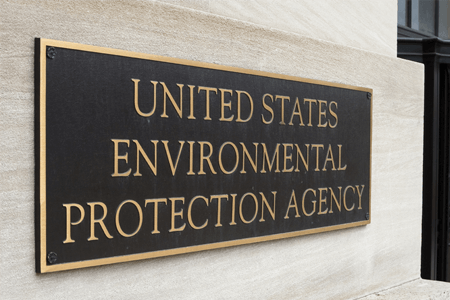WASHINGTON (June 20, 2022) — The American Chemistry Council (ACC) filed comments with the Securities and Exchange Commission (SEC) on June 17 regarding the Commission’s proposed rulemaking, "The Enhancement and Standardization of Climate-Related Disclosures for Investors.” ACC highlighted the chemical industry’s ongoing disclosure activities and recommended changes to improve the proposal.
ACC and its members are committed to being partners and solution providers in supporting the nation’s path to a lower-emissions economy. Our companies are continually seeking new ways to improve energy efficiency and reduce emissions while advocating for policies to enable climate progress. ACC has had engagement with robust and rigorous third-party climate disclosure frameworks for nearly a decade.
“ACC has long supported an approach to disclosure of climate-related information that is company-specific, guided by materiality, and built off existing third-party frameworks,” said ACC Senior Director for Energy, Climate, and Environment Charles Franklin. “As proposed, the SEC rule does not reflect these core principles.”
“The SEC proposal does not pass the ‘materiality’ test, as disclosures are not confined to business-relevant information that governs investment decisions,” Franklin continued. “Also problematic, the proposal applies a ‘one size fits all’ standard rather than the flexible, business-specific approach used by influential third-party frameworks.”
Today, companies share climate-related information with the SEC when it meets the standard definition of financial materiality. While some companies provide additional information in sustainability reports and other public documents, such voluntary disclosures cannot and should not be used to justify economy-wide mandates or the rigid content, attestation, audit, and liability standards proposed here. Mandatory disclosure via SEC filings would upend existing corporate programs and increase the cost and complexity of systems used for compliance. It could also hinder company efforts to develop, advance, report, and invest in sustainability actions.
The SEC proposal undermines a competitive marketplace. Rather than supporting businesses that share information about their climate-related activities and progress, the rule penalizes them by imposing requirements, costs, and potential heightened liability not borne by their competitors.
While some companies use portions of third-party frameworks as a basis for voluntary disclosure, these voluntary, flexible frameworks differ greatly from mandatory reporting in terms of cost, burden, and practicability across companies and industries.
The proposal’s heavy emphasis on Scope 3 emissions reporting raises particular concerns for ACC members, who provide products of chemistry used across every sector of the economy and every step in the product value chain. Under the proposal’s vague and overbroad reporting and liability standards, public companies and their suppliers, customers, and end users may be subject to intense pressure to conduct onerous scope 3 emissions analyses regardless of materiality. Because such estimates will be based on incomplete data or subjective assumptions, they will provide little comparative value to reasonable investors.
Given the numerous concerns, ACC recommends the Commission delay action on the current proposal to allow for additional stakeholder consultation within the registrant and investor community. At minimum, ACC encourages a greater emphasis on furnishing investors with a balanced view of a registrant’s broader financial risk profile, including both material climate and non-climate risk factors. Scope 3 reporting should focus on qualitative assessments of investment risks and should not require quantitative reporting at this time. SEC should also provide adequate transition time for registrants and their technical, accounting, and legal advisors to develop the expertise, methodologies, and data systems required for good-faith compliance with new mandates. ACC offers further suggestions in its comments.


